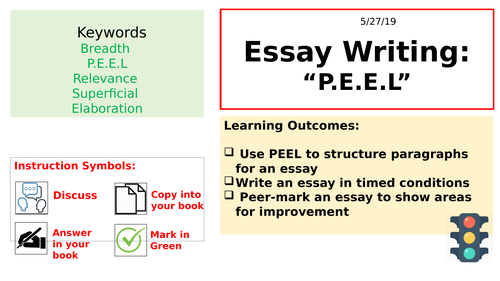
- April 25, 2023
- No Comments

Mastering A Level Biology Essays: Smart Tips and Unbeatable Examples
[email protected]
Introduction
A Level Biology is a challenging but rewarding course that covers a wide range of topics, from DNA and genetic inheritance to ecosystems and biodiversity. The key to success in this subject lies in understanding and applying the core principles of Biology and expressing your understanding in well-structured, coherent essays. In this article, we will provide you with some essential tips for writing outstanding A Level Biology essays, as well as presenting clear examples to help you master the essay-writing process.
- Understand the essay question
The first and most important step in writing an A Level Biology essay is to clearly understand the question. Break down the question into its key terms and implications, and ensure you comprehend what the examiner is asking you to discuss. Make a note of any key words or phrases that should feature in your essay, as these will help you structure your response and ensure you cover all the necessary points.
- Plan your essay
Before you begin writing your essay, take the time to plan your response. Create an outline that maps out the main points you want to make, as well as the order in which you will discuss them. This will enable you to develop a logical and coherent argument that addresses all the key aspects of the question.
- Include an engaging introduction
An effective introduction is crucial to grabbing the reader’s attention and setting the tone for your essay. Begin with a general statement that links to the essay question, and then narrow down your focus to present your main argument or line of inquiry. Finish your introduction with a clear thesis statement, which outlines the central points you will cover in your essay, demonstrating a solid understanding of the topic.
Example: The discovery of DNA and the subsequent advancements in genetic research have proven instrumental in understanding the role of genetics ininheritance of traits and diseases. This essay will discuss the role of genetic inheritance in the development of several human diseases, namely: Cystic Fibrosis, Huntington’s disease, and Alzheimer’s disease, as well as the ethical implications surrounding genetic testing and treatment.
- Use specific examples to support your arguments
In A Level Biology essays, it is essential to provide examples that demonstrate your understanding of the material and support your claims. Try to include a range of examples from different areas of the subject to show that you have a comprehensive and in-depth understanding of the course material.
Example: Cystic Fibrosis is an example of a genetic disorder caused by a mutation in the CFTR gene, which results in thick and sticky mucus production in affected individuals. This condition can lead to respiratory and digestive complications, illustrating the significant impact of genetic inheritance on an individual’s health.
- Synthesize information from multiple sources
To demonstrate a high level of understanding, A Level Biology essays should integrate information from various sources, such as class notes, textbooks, and scientific articles. Be sure to support your ideas with specific references to the source material, and use your own words to explain the concepts in a clear and concise manner.
- Address counterarguments and controversies
In any scientific field, there are often debates and controversies surrounding key concepts and theories. To show a comprehensive grasp of the subject matter, be sure to address counterarguments and discuss opposing viewpoints in your essay.
Example: While genetic testing for diseases such as Huntington’s has the potential to provide valuable information for individuals at risk, there are ethical concerns about the potential misuse of genetic information by employers, insurance companies, and even government entities. Weighing the benefits of genetic testing and treatment against these ethical concerns is an ongoing debate within the scientific community.
- Write a strong conclusion
To wrap up your essay, restate your main argument and summarize the key points you have made. Provide a clear and concise conclusion that demonstrates the significance of your argument and its implications for the broader field of Biology.
Example: In conclusion, the role of genetic inheritance in human diseases, as illustrated by Cystic Fibrosis, Huntington’s disease, and Alzheimer’s disease, underscores the immense potential of genetic research to improve our understanding of human health. However, as we continue to advance our knowledge and develop new treatments and testing methods, it is crucial that we remain conscious of the ethical implications that come with such advancements in order to protect individuals’ rights and liberties.
- Proofread and edit your essay
Finally, make sure you thoroughly proofread and edit your essay to correct any grammar, spelling, or punctuation errors, and to ensure that your argument flows smoothly and logically. Consider asking a friend or peer to review your essay and provide feedback – a fresh perspective can help you identify areas for improvement that you may have overlooked.
In summary, mastering A Level Biology essays involves understanding the essay question, planning a clear and logical response, using specific examples and evidence, synthesizing information from multiple sources, addressing counterarguments and controversies, and crafting a compelling introduction and conclusion. By following these steps and using the examples provided, you will be well on your way to delivering high-quality, insightful essays that demonstrate an excellent understanding of the complex and fascinating world of Biology.
Good luck, and happy essay writing!
Leave a Reply Cancel reply
Your email address will not be published. Required fields are marked *
Save my name, email, and website in this browser for the next time I comment.
Related Posts
The importance of biology o’level and a’level past papers in the malta education system.
O’levels and A’levels are both types of secondary school qualifications that are recognized worldwide. O’levels are typically taken at the age of 16, while A’levels
How Hard is Biology A Level: A Comprehensive Guide
Introduction: Biology A Level is a popular subject among students who desire to pursue careers in life sciences, medicine, and related fields. However, it is
Is A-Level Biology Harder Than A-Level Maths?
Introduction When it comes to choosing subjects at A-level, students often find themselves perplexed about which subjects to choose. This particularly holds true for subjects
Most Common A-Level Biology Questions By Topic
Introduction A-Level Biology is a rigorous subject that tests students’ knowledge and skills in various areas, ranging from cell biology to ecology. To excel in
A Level Biology: A Comprehensive Guide to Viruses
Introduction Viruses have always been a topic of great interest and controversy in the world of biology. As a fundamental concept in A-Level Biology, understanding
Woolton Tutors
One-to-one tutoring in science, maths and languages

How to answer A-level Biology essay questions

The Synoptic essay questions in paper 3 of the AQA A-level biology course carries 25 marks, so can make a big difference to your overall grade. The essay encourages you to think across different topics (some call this “synoptic” or “holistic” thinking). This is also valuable for other areas of the exams, particularly the application questions .
Here are a few tips for tackling your A-level biology essay: (As an example, Let’s use the title “The importance of movement in cells and tissues”)
Think broadly…
Essay titles are deliberately vague to give you the chance to show your knowledge in a variety of topics. To help you to choose what’s most relevant, look out for subjective words like “movement” and “cells”. Think of the possible alternatives. “Cells”, for example, hints that you could discuss plants, animals, single-celled organisms etc. in your essay. “Movement” could mean short distances (across a membrane) or much further (circulation or mass flow) or even the whole tissue moving (phototropism).
Visualize and catastrophize!
If you can’t think of enough topics for an “importance” essay, flip the question around – what would happen if movement in cells suddenly ground to a halt? Or if ATP suddenly vanished, or our cells were robbed of their ions? Sometimes catastrophizing in this way frees up thoughts, and helps you see what is really important. Another way is to picture every diagram in your notes or textbook that features the thing-that’s-important-in-the-question. If it’s in a diagram, it could go in your essay.
Pick your strongest topics
It’s possible to drop marks on the essay for scientific errors. With that in mind, even if you have lots of ideas for things to include, always pick the topics you can write confidently about. For bonus marks, try to order them in a way that “flows” like a story. Take care to use A-level (and not GCSE) language too.
Keep an eye on the question
While you’re writing, keep asking yourself “Where am I placing the emphasis?”. If the essay is about movement, perhaps you don’t need a whole page about nervous responses, only the bits where movement is involved – sodium ions flowing through channels, waves of depolarisation etc. Movement is the focus of the essay, after all, not neurons. Always ask yourself “Does this sentence fit with the title of the essay?”
Use outside knowledge
The top marks for the essay are reserved for displaying “evidence of reading beyond specification requirements”. Often you can drop recent scientific research or news into your writing – how vaccines tackle COVID might work in an essay about viruses, for example. I often encourage students to have a quick look at the news pages of New Scientist pages (eg https://www.newscientist.com/subject/health/ ) before paper 3 for inspiration – you don’t need to spend ages doing this, just long enough to have one or two ideas up your sleeve…
Good luck with your essay!
If you’d like to work through some example essay questions, please get in touch with me at Woolton Tutors (or Woolton Biology) and we can set up some online biology tutoring sessions.
Best wishes,
Dr John Ankers
Specialist online A-level biology tutor
www.wooltontutors.co.uk
Share this:
Author: Dr John Ankers
Dr John Ankers is a tutor, coach and writer. For writing and consultancy work, please contact me at [email protected] View all posts by Dr John Ankers
Leave a Reply Cancel reply
Your email address will not be published. Required fields are marked *
Notify me of follow-up comments by email.
Notify me of new posts by email.
How to go about writing an essay in A level biology (for exampe: The importance of proteins in the control of processes and responses in organisms)
When attempting an essay question like this it is important to pull together topics from different areas of the course. Start by writing a quick plan including 5 relevant topics that you feel confident talking about. Your essay should start with a brief introduction that defines any key words in the title and lists the topics you are going to discuss. For this question, the introduction should contain the definition of a protein and an explanation as to why it is important to control metabolic processes. Next, should be your main paragraphs answering the question. Each paragraph should discuss a topic in depth, making around five correct scientific points and then, most importantly, linking the topic back to question. Relevant topics for this question could include: blood glucose control, haemoglobin affinities, enzymes as catalysts, movement across cell membranes and transcription factors. When picking topics, you should try to pick at least one that allows you to include something from beyond the specification, whether that is something you have learned from your extra reading or the beyond the specification topics the exam board has specified. For example in this question, one could discuss the affinity of different animals in the paragraph on haemoglobin. Your essay should end with a short conclusion, summarising your points and pulling them all together. For example, in this question you could quickly discuss why the structure of proteins makes them suited to this role.
11076 Views
Related Biology A Level answers
Explain how fhs and oestrogen illustrate the principle of negative feedback during the menstrual cycle, and explain therefore why oestrogen may be used as a contraceptive., genetics: how does our genotype influence our phenotype, describe the process of atherosclerosis and the effect it has on the properties of the blood vessel, how can dna mutations alter the structure of a protein, we're here to help, company information, popular requests, © mytutorweb ltd 2013– 2024.
Internet Safety
Payment Security
How to Write an A-Level Biology Essay
Scoring a high mark in exams requires solid preparation, including research, notes taking, and going through mock tests. Without these steps, it is very difficult to do well, especially if the exams are as hectic and vigorous as A-levels.
A-level Biology essay takes a lot of time to learn and prepare to master. There are so many variables and each one could be trickier than the last one. Still, going through the latest paper pattern, past essay examples, and relevant reference material can help students earn exemplary grades on the paper.
In this post, we will go through the latest form of the A-level Biology Essay and some past essay questions for the convenience of students.
Still, if you are not up for a challenge, you can reach out to us and we’ll write an essay for you !
Table of Contents
A-Level Biology Essay Structure
Before attempting to write a great essay in an A-level biology essay, students should go through its structure. It is because by spelling out abstract ideas or sporadic terms, they will not be able to get top-tier scores.
Following is a rundown of some of the components of a great 25 mark AQA A-level Biology essay paper :

Well-thought-out abstract
Explanation through the main body, fine-tuned content with examples, supplementary sources.
Let’s go through each point to learn how to structure an A-level Biology essay.
In the official mark scheme, the examination body has directed the examiners that maximum marks should be awarded to those students who have written an “extended abstract”.
In simple terms, an abstract is like an introduction. It is usually longer than a paragraph of 5 to 6 well-structured sentences. The abstract sheds light on the paper, in this case, an A-level biology paper, and its contents that will be discussed in the main body.
The rationale for writing an abstract for a paper is simple. It describes, not explains or defends, what the succeeding sections of the paper will explain or defend.
If a student is planning to secure maximum marks in his A-level Biology paper, then mastering the layout of the paper comes first, especially the abstract.
After the abstract comes the meat and bones of an A-level Biology paper. In this section, which can be called the main body, students must defend, explain, or expand on the premise they set out in the abstract.

A great body section of the paper should use necessary writing methods, such as exposition, narration, and so on to clear a doubt or point. It should be comprehensive and should cover all the bases. The coherence of the prose can make it easier for readers, in this case, examiners, to see how much understanding the writer has about the subject.
The official document on mark schemes has also put a lot of stress on the scientific content of the AQA A-Level paper. According to that, the content in each section of the answer should be a part of the whole. If a point is raised in one section, it should be discussed and elaborated on with necessary examples before moving on to another point.
Also, the level of understanding and caliber in writing should be reflective of A-levels studies in general, and not that of GCSE.
The rationale behind conducting an A-level essay is to check the level of understanding and acumen at the end of students. The contents of the paper should be clearly explained and well-written with no grammatical errors or structural inconsistencies.
Overall, the paper should show to the examiners that the writer did not stop at prescribed sources and went beyond that in preparing the paper.
Tips on Writing a 25 Mark AQA Biology Essay
Simply explaining the nuances of the A-level paper may not be enough for a majority of students. Apart from quoting official resources and going through the intricacies of the structure of the first-class essay , it is time to share some practical tips that will help students in getting down all the essentials.

Some tips on securing 25 marks on the AQA essay are given below:
Proper Bridging Between Sections
Wholesome approach toward answers, proofing & editing, appropriate terminology, no irrelevant material.
The examination body prefers a “holistic” approach to answering the question in an A-level essay. It means that each section and subsection of the answer should serve only one purpose, to elaborate on or to defend the stance taken by the writer. Anything else can be distracting and deemed irrelevant.
There must be no stray sections of sporadic paragraphs telling the same thing over and over again. Instead, each answer is given with all its relevant supporting material organized in an easy-to-read manner. It should be comprehensive in detailing and leading the content in the right direction with a suitable example.
Many students are of the view that there is simply not enough time to proof or edit the A-level Biology essay paper before turning it to the invigilator. There may be some truth to this claim, but it is also true that these papers carry so many grammatical mistakes, including spellings, conjunctions, prepositions, etc.

That’s why it pays dearly to go through a session of proofing and making necessary edits before submitting the paper for marking. It will not only leave a great impression but also fetch superior marks.
This is another thing that is often stressed in the instructions by examiners. Using proper terms and phrases lead examiners to think that the writer spends ample time preparing and understanding the paper. In contrast to this, the paper has misleading terms and a vague choice of words.
Adding irrelevant material to the paper is more harmful than leaving something out because of irrelevance or doubt. This is on the same lines that understatements are much better than overstatements resembling a quick plan.
In the guidelines section, the examining body has clearly stated that anything, a line or several lines, that fails to address the topic or the theme of the title will be considered irrelevant.
Past A-Level Biology Essay Questions
After going through some of the practical tips to prepare the A-level paper, students will have plenty of material and guidelines to prepare the paper. Another way to ace the details is to go through the past papers. They can reveal to the students what to expect in the paper and serve as practice papers to improve their preparation.
Here is a list of some of the example questions that have been asked in the A-level Biology paper in the past:
- Cycles In Biology A Level Essay
- Importance Of Proteins A-Level Biology Essay
- The Importance Of Diffusion In Organisms
- The Importance Of Cycles In Biology
- Explain the importance of ions in biology
- The importance of diffusion in organisms
- Genetic diversity and adaptation
- The importance of nitrogen-containing substances in biological systems
- Homeostasis is the maintenance of a stable internal environment
- Gene technologies allow the study and alteration of gene function allowing a better understanding of organism function and the design of new industrial and medical processes
It is safe to summarize that an A-level Biology essay writing can be tricky to prepare to get maximum marks. Many students go through a lot of trials and tribulations but come up short. In this article, we have outlined the physics of the paper, along with some pro tips that will help the students in self-evaluating during the preparation phase. In the end, some questions from the past papers were given to have students some semblance of what to expect in the paper. Aspirants can learn valuable lessons by going through this article for their interests in an A-level essay.
Places on our 2024 summer school are filling fast. Don’t miss out. Enrol now to avoid disappointment
- How to Write a Great Essay for Different A-Level Subjects

In previous articles, we’ve given you lots of advice on how to write the perfect essay.
You should also read…
- 6 Practical Tips for Writing Better Essays
- How to Do Research for an Excellent Essay
However, the skills we’ve discussed up to now have been generic, and have not taken into account the fact that different subjects require different skills when it comes to writing excellent essays for them. In this article, we look at the particular skills needed to write great essays for individual A-level subjects, so that you can familiarise yourself with what you need to do to excel in whatever A-levels you happen to be studying.

Good English literature essays revolve around intelligent interpretation. The problem many students have with this is organising their interpretations into a tightly structured essay that flows well; many simply let their ideas run wild and flit aimlessly between one point and the next. To combat this problem, you need to consider the writer’s overall aims and then show how they have conveyed those aims, paragraph by paragraph, with each paragraph devoted to a particular technique or focus. A good structure to use is as follows:
- Point – make a statement, such as “Brontë uses the bleakness of the moorland setting to reflect Heathcliff’s temperament.”
- Explanation – elaborate on the statement in more detail. In this example, your explanation would involve explaining the parallels between Heathcliff and the moors – their unpredictability and wildness, for instance, and the violence of the weather mirroring Heathcliff’s violent personality.
- Evidence – now provide quotes from the text to back up what you mean. In the Heathcliff example, you could quote specific words and phrases that show similarities in the way Heathcliff is described and the way in which the moorland landscape and weather are described.
- Reiterate – close off the paragraph by reiterating the point, and perhaps developing it a little further or introducing the idea you’re going to carry into the next paragraph. For example, “This ties in with a wider theme running through the book as a whole, which is that nature parallels human emotions.”
Good English essays pay close attention to detail, noting specific words, phrases and literary devices a writer has used, and to what effect. They quote liberally from the text in order to support each point, deconstructing the writing and analysing the use of language; they look at different interpretations, seeing beyond the surface and picking up on possible deeper meanings and connotations. But they also consider the meaning of the piece as a whole, and the overall effect created by the specific details noted. All this should be considered within the framework of the genre and context of the piece of writing. For instance, a poem by William Wordsworth would be considered within the context of the Romantic poets, and might be compared with work by contemporary poets such as Shelley or Keats; the historical background might also be touched upon where relevant (such as the Industrial Revolution when discussing the poetry of William Blake).

Though it’s also a humanities subject, History requires its own very particular set of skills that differ to an appreciable degree from those expected of you in English. A history essay is unequivocal about its writer’s opinion, but this opinion must be based on a solid analysis of evidence that very often can’t be taken as fact. Evidence must be discussed in terms of its reliability, or lack thereof. The good historian considers what biases may be inherent in a source, what vested interest the source might have, and what viewpoint that source was written from. For instance, you might analyse a source by discussing whether or not the person was present at the events they are describing; how long after the events they were writing (and therefore whether they are remembering it accurately if they were there, or whether they are getting their information second or third hand from someone else; and if so, how reliable the original source is); whether they are trying to show evidence to support a particular political view; and so on. So, each time you make a point, back it up with evidence, and consider the strengths and weaknesses of that evidence. A good history essay makes connections between what’s been written about, considering how issues interrelate, so think about how what you’re writing about ties in with other things; what was the impact of the event you’re discussing, did it happen in isolation, and what were the events that led to it ?

It’s vital to look at both sides of the argument – or, where many possible viewpoints exist, to acknowledge these nuances. It’s fine to contradict yourself, provided you do so consciously; that is, you can build up an argument and then turn it on its head, observing that you are doing so (for example, “So far, so compelling; but what about the less well-known evidence from such and such?”). You can use quotes from historians you’ve read, but use these in the context of discussing scholarly opinion. Don’t quote a historian’s words as evidence of something, because this is only someone’s opinion – it’s not proof. Finally, where possible, use specialist terms to show that you know your stuff (“proletariat” instead of “workers”, for example).
The primary task that lies ahead of you in writing a French essay is, of course, to demonstrate your superior language skills. Keep the content itself very even-handed, sitting on the fence rather than presenting a forceful opinion that could distract attention away from the quality of your use of French. Focus on using as wide a variety of vocabulary and tenses as you can. It will help your essay if you can learn how to say more sophisticated phrases in French, of the sort you would use if you were writing an essay in English. This useful document from RealFrench.net, Writing Essays in French, will give you numerous useful French phrases to help you put together an impressive essay, including the vocabulary you need to present a balanced argument.

Geography is a subject that crosses the divide between the sciences and the humanities , considering both physical processes and human activities (and their effects on the world around us). Essays for Geography may differ depending on which of these focuses the essay is discussing, and the evidence you might include in your essay could vary from phenomena observed and data gathered in the natural world to the results of population censuses. To write a good Geography essay, you’ll need to include both theory and detailed, real-world case studies to support your answer. Mention specific places by name, and communicate the facts accurately. Your teacher will be assessing not just your knowledge, but your ability to support what you say with relevant information that proves it. You shouldn’t just rattle off everything you know about a particular case study; you should deploy relevant facts from the case study to support a specific point you’re trying to make. Keep linking each point back to the question, so that you’re always working towards answering it; this also helps you ensure that everything you include is actually relevant to the question. Showing that you’ve thought about an issue from multiple perspectives, and that you appreciate how they interrelate, is important in Geography. You can do this by organising the content of your essay into categories, considering different factors in turn, such as the scale of the issue, and the timeframe and environment involved. Discuss the various factors involved logically, one by one, such as the environmental impact of climate change or a natural disaster (such as a tsunami or volcanic eruption), followed by its physical, economic, social and political implications. Acknowledging the numerous nuances of the situation will demonstrate your appreciation of its complexity and show that you are thinking at a high level.
Classical Civilisations

As the study of the ancient world (primarily ancient Rome and Greece), Classical Civilisations combines archaeology and history, looking both at what survives materially (from small finds, to art and sculpture, to temples) and what survives in the way of texts by ancient authors. A good essay for this subject analyses, evaluates and interprets. The historical elements of the subject will require the same set of skills we discussed for History earlier, while the archaeological components of this subject require slightly different skills. With your archaeologist hat on, your job becomes similar to that of a detective, piecing together clues. Archaeology crosses over into science, and with that comes scientific considerations such as how archaeological evidence has been gathered – the methods used, their reliability, whether or not they could have been tampered with, how accurately they were recorded, and so on. You’ll look at a variety of different types of evidence, too, from the finds themselves to maps of the local topography. As with Geography, for which you’re required to learn lots of detailed case studies and names, you’ll need to learn plenty of examples of sites and finds to use as sources of evidence in building up a picture of the ancient world. And, as with any subject, looking at both sides of any argument is crucial to good grades. If the evidence you’re discussing could show one thing, but it could also show another, don’t just present one possibility – show that you’ve thought in depth about it and consider all the possible interpretations.
Science subjects

The sciences – Biology, Chemistry, Physics and Mathematics – are generally less essay-focused, so we’re grouping them together here because the essay skills required for each of these subjects are very similar. While the fundamentals of scientific essay writing are the same as any other subject – having a logical structure, well-developed argument, and so on – there are a few subject-specific considerations to bear in mind, and some common pitfalls to watch out for. The first is that there is no room for opinion in a scientific essay; unless you’re specifically asked for it, leave your own thoughts out of it and focus instead on a completely objective discussion of the evidence gathered through scientific research, which will most probably be quantitative data. Avoid vague language such as “it is thought that…”; be as precise as possible. Start with a hypothesis, and then discuss the research that supports or disproves it. Back up every statement you make with solid data; it’s not enough simply to drop in the name of the research, so briefly describe what the findings were and why they prove the statement you’ve just made. Another mistake many students make is to confuse cause and effect; this arises because of the tendency to assume that correlation implies causation, which is a common logical fallacy. Just because two things appear to be related, it doesn’t mean that one caused the other, and committing this error in an essay is a major faux pas that will lose you marks. It’s also a good idea to ensure that you’ve included every piece of research that could be relevant; if you don’t, you could be leaving out a crucial piece of evidence. Finally, mention any limitations there may have been with the methodology used to gather the data you discuss.

Psychology essays are best approached with a scientific mindset, but it’s far more difficult to prove anything in this subject – and this should be acknowledged in your essay. The task becomes one of assessing which theory is the more probable one, based on an analysis of the data from various studies. Make liberal reference to named and dated psychological experiments and research, but acknowledge the fact that there may be more than one theory that could account for the same set of results. When these experiments are quoted as evidence, this should be done with reference to any possible limitations of how the experiment was conducted (such as a small sample size). If you’ve reached the end of this article, you’re now equipped with the knowledge to write fantastic essays guaranteed to impress your teachers. You’re also well on the way to thinking in the right way for university-level essays, so keep working on these skills now and you’ll find it much easier to make the leap from sixth former to undergraduate.
Image credits: banner ; Wuthering Heights ; Diet of Worms ; factory workers ; Charioteer ; Hubble Space Telescope ; Psychology .
Ultimate Guide to Writing Your College Essay
Tips for writing an effective college essay.
College admissions essays are an important part of your college application and gives you the chance to show colleges and universities your character and experiences. This guide will give you tips to write an effective college essay.
Want free help with your college essay?
UPchieve connects you with knowledgeable and friendly college advisors—online, 24/7, and completely free. Get 1:1 help brainstorming topics, outlining your essay, revising a draft, or editing grammar.
Writing a strong college admissions essay
Learn about the elements of a solid admissions essay.
Avoiding common admissions essay mistakes
Learn some of the most common mistakes made on college essays
Brainstorming tips for your college essay
Stuck on what to write your college essay about? Here are some exercises to help you get started.
How formal should the tone of your college essay be?
Learn how formal your college essay should be and get tips on how to bring out your natural voice.
Taking your college essay to the next level
Hear an admissions expert discuss the appropriate level of depth necessary in your college essay.
Student Stories
Student Story: Admissions essay about a formative experience
Get the perspective of a current college student on how he approached the admissions essay.
Student Story: Admissions essay about personal identity
Get the perspective of a current college student on how she approached the admissions essay.
Student Story: Admissions essay about community impact
Student story: admissions essay about a past mistake, how to write a college application essay, tips for writing an effective application essay, sample college essay 1 with feedback, sample college essay 2 with feedback.
This content is licensed by Khan Academy and is available for free at www.khanacademy.org.
- International
- Schools directory
- Resources Jobs Schools directory News Search

Biology AQA Essay Writing
Subject: Biology
Age range: 16+
Resource type: Other
Last updated
27 May 2019
- Share through email
- Share through twitter
- Share through linkedin
- Share through facebook
- Share through pinterest

A level essays can be hard !!
Essay writing presentation is equipped many activities to help A-level students in biology start writing essays. This lesson focuses on the “importance… style of essay questions” Includes various activities for students to complete to help in writing a synoptic essay. Focuses on the PEEL paragraph structure and also includes an essay question for students practice essay writing
Tes paid licence How can I reuse this?
Get this resource as part of a bundle and save up to 24%
A bundle is a package of resources grouped together to teach a particular topic, or a series of lessons, in one place.
A level Biology Essay Package
Making Essay Writing easy ! Equipped with: - Essential tips on planning and writing an synoptic essay - Various activities to helps students structure their writing - Worksheets on determining topics - Worksheet on how to assess and mark essays for teacher and student use
Your rating is required to reflect your happiness.
It's good to leave some feedback.
Something went wrong, please try again later.
This resource hasn't been reviewed yet
To ensure quality for our reviews, only customers who have purchased this resource can review it
Report this resource to let us know if it violates our terms and conditions. Our customer service team will review your report and will be in touch.
Not quite what you were looking for? Search by keyword to find the right resource:

IMAGES
VIDEO
COMMENTS
Biology is detailed and comprehensive A-level content, uses appropriate terminology, and is very well written and always clearly explained. No significant errors or irrelevant material. For top marks in the band, the answer shows evidence of reading beyond specification requirements. 16-20. Relational.
I have been working with some tutees to improve their approach to the AQA Paper 3 Extended Essay - so here are a few tips, and all of the essay titles (and markschemes) since 2007. A Few Points Raised By The Exam Boards Feedback. The essay is designed to assess whether you can bring together material from a range of topics to illustrate and ...
Throughout the development of the current 7402 A-level Biology specification, AQA spoke to teachers and university experts about the biology essay. It was clear that that extended writing was seen as an important skill that biology students should be developing. 'Level of response' mark
This essay will discuss the role of genetic inheritance in the development of several human diseases, namely: Cystic Fibrosis, Huntington's disease, and Alzheimer's disease, as well as the ethical implications surrounding genetic testing and treatment. Use specific examples to support your arguments. In A Level Biology essays, it is ...
Learn how to write the 25 mark essay on the AQA A-level paper 3. I fully explain the mark scheme, how to analyse the titles, how to structure your paragraph...
The AQA Biology essay may fill you with dread, but that's why I am going to make it easier and boost your confidence. In this video, I talk you through two ...
The Synoptic essay questions in paper 3 of the AQA A-level biology course carries 25 marks, so can make a big difference to your overall grade. The essay encourages you to think across different topics (some call this "synoptic" or "holistic" thinking). This is also valuable for other areas of the exams, particularly the application.
2024 Essay Preparation for A Level Biology AQA. This is the latest and only version, recently updated with last year's (2023) accessible essay. **This resource makes PRACTISING and REVISING for the AQA Paper 3 Biology Essay, SPECIFIC, and EASY. TEACHERS, use as a lesson resource, throughout upper 6, and as a preparation session before Paper 3.
docx, 15.7 KB. xlsx, 11.08 KB. A compilation of useful resources to help you develop the essay writing skills of your pupils. The adapted learning map resource is a sample ( you may choose to change the essay topics). It is a good idea to incorporate the learning map into the Scheme of Work for the cohort at the start of term 1, this will help ...
How to go about writing an essay in A level biology (for exampe: The importance of proteins in the control of processes and responses in organisms) When attempting an essay question like this it is important to pull together topics from different areas of the course. Start by writing a quick plan including 5 relevant topics that you feel ...
Before attempting to write a great essay in an A-level biology essay, students should go through its structure. It is because by spelling out abstract ideas or sporadic terms, they will not be able to get top-tier scores. Following is a rundown of some of the components of a great 25 mark AQA A-level Biology essay paper: Well-thought-out ...
14) DNA/RNA (pentose) The importance of shapes fitting together in cells and organisms. 1) Enzyme properties and digestion. 2) Protein structure. 3) Plasma membrane structure and cell transport. 4) Antigens, antibodies, B cells & T cells. 5) Vaccines. 6) Structure of DNA.
This document contains the essay titles and mark schemes used in AQA A-level Biology examinations since 2007. The specifications these exam questions came from are no longer in use, but the marking method has largely remained unchanged. Further guidance on the marking method used with the essay can be found in Paper 3 Essay marking guidance.
French. The primary task that lies ahead of you in writing a French essay is, of course, to demonstrate your superior language skills. Keep the content itself very even-handed, sitting on the fence rather than presenting a forceful opinion that could distract attention away from the quality of your use of French.
AQA A Level Biology Paper 3 Essay Tips and Activity. A handout for pupils covering key things to think about when attempting the AQA Essay along with a powerpoint to go through the key parts in lessons. From AQA Past Paper Questions and the guidance on their website - added a few more as I realised some of the mark schemes has disappeared for ...
essay at second or third year level would usually use at least 10, and preferably closer to 20 references comprising a mix of primary research and recent review articles. At first year level 5-8 are expected. In all technical writing there are literary conventions to be met in acknowledging sources of information.
Not addressing the biological theme of the essay (e. importance) at A-level standard. Q1. The importance of cycles in biology..... 3.1 Monomers and polymers; 3.1.4 Many proteins are enzymes; 3.1 ATP; 3.2 All cells arise from other cells
I want to help you achieve the grades you (and I) know you are capable of; these grades are the stepping stone to your future. Even if you don't want to stud...
A LEVEL BIOLOGY: 25 Mark essays. 4.6 (39 reviews) Get a hint. The importance of shapes fitting together in cells and organisms. Click the card to flip 👆. *Enzyme properties and digestion. *Antigens, antibodies, B cells & T cells. *Structure of DNA. *DNA replication.
A level biology y13- mutations and gene expression . 70 terms. eg3326924. Preview. 2.4 Biology: role of the kidney- ultrafiltration . 20 terms. amberstanyer. ... Write an essay about cycles in biology. Carbon dioxide may affect organisms directly or indirectly. Describe and explain these effects. The causes of disease in humans. About us.
Want free help with your college essay? UPchieve connects you with knowledgeable and friendly college advisors—online, 24/7, and completely free. Get 1:1 help brainstorming topics, outlining your essay, revising a draft, or editing grammar.
A level Biology Essay Package. Making Essay Writing easy ! Equipped with: - Essential tips on planning and writing an synoptic essay - Various activities to helps students structure their writing - Worksheets on determining topics - Worksheet on how to assess and mark essays for teacher and student use. £6.50.